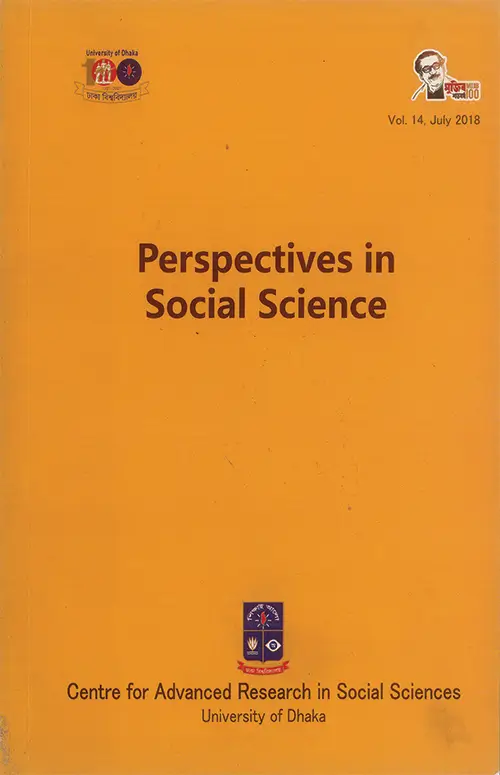
Perspectives in Social Science
Volume 14 July 2018
Perspectives in Social Science
Explaining the Variation in Formalization of the Accountability Mechanisms: A Socio-Political Analysis
Perspectives in Social Science
Volume 14 July 2018
DOI:
ISSN : 2957-5001
Abstract
The paper argues that imposing the accountability mechanism of the "developed" world into the societies in transition may not be an effective way to ensure administrative accountability. Developing countries lack the institutional formalization that works as a prerequisite condition for the application of formal mechanisms of accountability. A rather effective, although not perfect, strategy can be to use the informal mechanism to construct a social environment that is more conducive to ensure accountability in administration. Before developing a prescription for accountability mechanism, it is necessary to understand the existing socio-cultural values of a society, defined as the pattern variables. These variables eventually determine the types of expectation set, level of access of the citizen and their influence on the bureaucracy. The interaction between these three factors eventually determines the degree of formalization, which in turn explains the variation in success of the accountability mechanisms. The paper shows the differences between economic, socio-political and administrative structure and their impact on accountability. It also shows the effect on the accountability factors that determine the variation in degree of formalization. These linkages are deconstructed in this paper in order to construct a theoretical framework. The paper eventually creates a theoretical framework which allows further studies to explain why the mainstream accountability mechanisms fail to perform in the context of transitional societies like Bangladesh.
Keywords:
Administrative accountability, formal and informal accountability mechanism, developing countries, socio-cultural values
